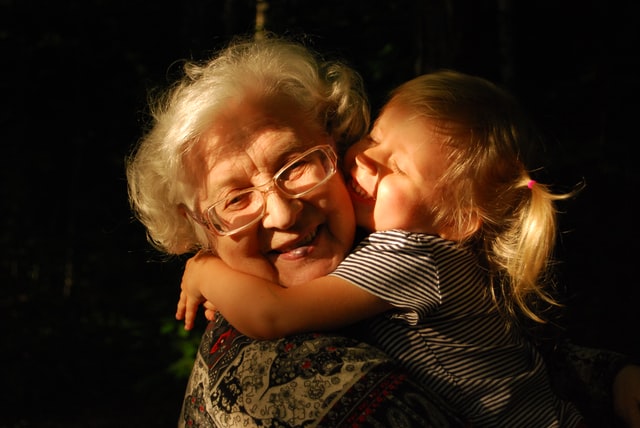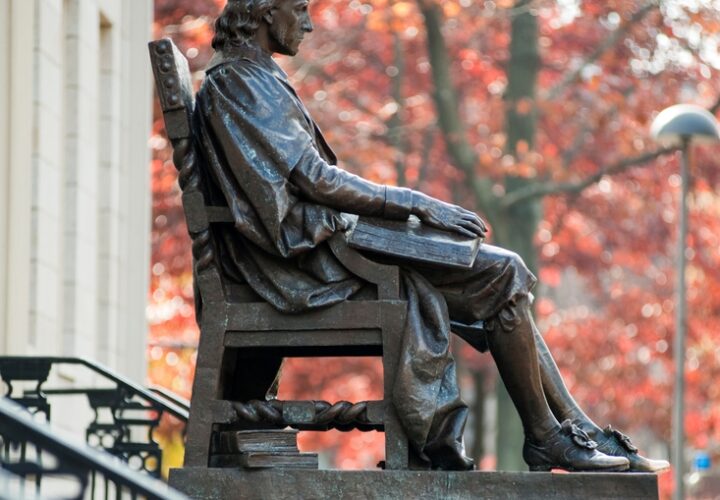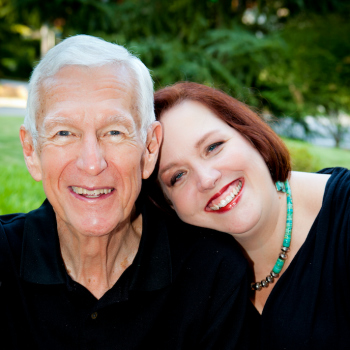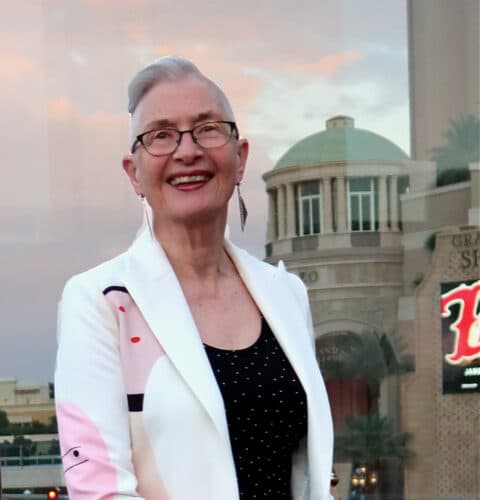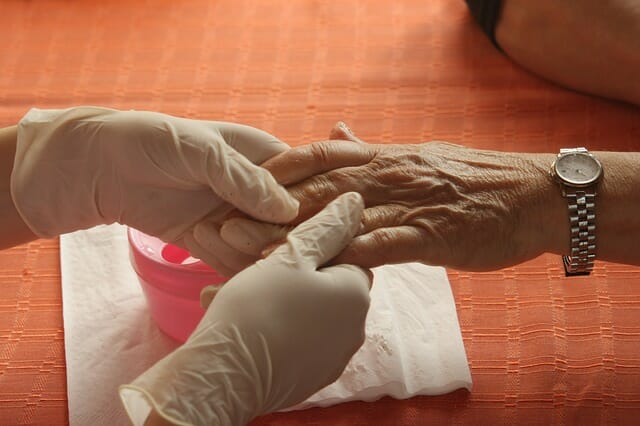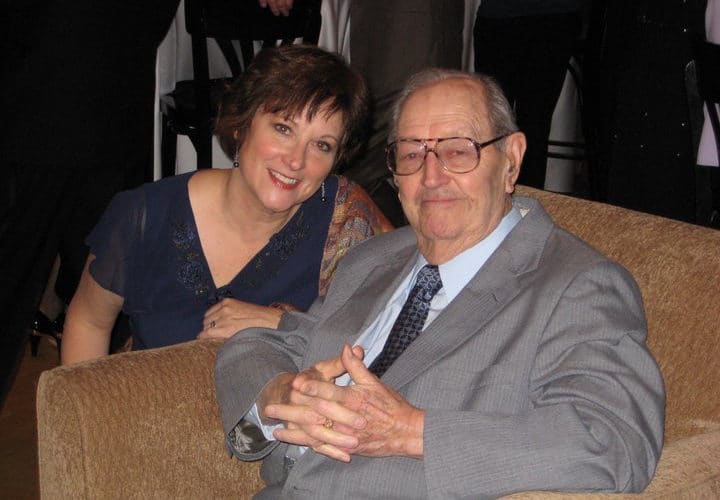I adored my grandparents, but distance prevented us from spending a lot of time together. I spent part of my summer at their home, and they visited my home every other year. I loved and respected them and eagerly listened to stories about their life experiences. We lived across the country from each other, and when I really missed them I would sheepishly ask my mom if I could make a long-distance call for just 2-3 minutes to talk with them. Even at a time when a one-minute, long-distance call was relatively expensive, Mom always obliged me.
***
After my dad passed away, I asked each of his seven caregivers to write a few words about their experience caring for him. It was a spontaneous idea that came with no real definition, just a request. What I received surprised me.
Ann said, “I used to call Frank ‘Papa.’ To me he was my papa too, and I called him Papa with all the respect it carried, and I meant it.” Shawn commented that “he motivated me to be all I can be in life,” and his twin brother David added that he eventually looked at my dad as a grandpa he wished he’d had as opposed to a client. Other caregivers referred to my dad as “Mr. Frank” as a sign of respect. This and more was written about my dad, who lived to be 92, and who had likely been living with Alzheimer’s for 20 years.
When I consider my valued experiences with my grandparents and the perspective of Dad’s caregivers, they are in stark contrast with viewpoints I have heard during the pandemic.
In March, I listened with horror when the announcement was made that families could no longer visit their loved ones living in senior communities and nursing homes due to the threat of COVID-19. I was heartbroken knowing that the decision that was made to protect the lives of the residents could potentially have a life-threatening impact of its own. On May 11th in the New York Times newsletter, I read that COVID-19 was “a virus that disproportionately harms the old.”
As people grew impatient for businesses to reopen, I read an impassioned plea written to a U.S. Congressman, “While studying current death tolls, please remove the anomalies from the equation, such as: nursing homes, jails, and COVID-blamed deaths for hospice patients.”
“I think most people still see nursing homes, assisted-living facilities and memory-care homes as just that: places people go to die,” said Phil Gutis in his May 8 essay for Being Patient, “Caring Places:”
“For people with that mindset, the residents of those facilities are expendable, having enjoyed life for 70, 80, 90 years, their lives already almost over,” Gutis wrote. “During my brief visit to that memory-care facility in Princeton, I did not see people waiting to die. I saw men and women trying to enjoy each and every day.“
Mere weeks into the pandemic, while many were growing tired of their perceived boredom and stay-at-home orders, I read a story about a World War II veteran in which he was asked how he was coping with the pandemic and if he needed any help. He explained that his parents had lived through World War I and survived the Spanish Flu, and that they all had lived through The Great Depression and World War II. Each of those historic events had been filled with many years of uncertainty, restriction and death. He had since witnessed several more wars, economic cycles and life-changing events. He said that he didn’t need any help coping with the pandemic because he had learned patience, adaptability and survival. In short, he had learned how to be resilient, something he could teach those junior to him who were struggling with isolation and uncertainty.
It disappoints me that I have heard some question why that gentleman’s generation is referred to as the Greatest Generation.
***
“If we do not learn to look after and to
respect our elderly,
we will be treated in the same way.
The quality of a society, I mean of a civilization,
is also judged on how it treats elderly people and
by the place it gives them in community life.”
–Pope Francis
It appears our culture doesn’t understand the value of what we currently refer to as our senior population. They have been isolated and referred to as “the old” whose deaths are “anomalies,” sending the message that their experience-based wisdom is not valued.
Perhaps this is in part due to the evolution of the words that we use in the United States in reference to our population as it ages, from old, elderly and senior citizen to now senior and active adult. I was raised believing that age is a state of mind.
My parents passed away at nearly 92, and they were not “old” in the sense of disengaged, disinterested and having given up. “Elderly,” only slightly better than “old” and possibly confused with “elder,” really means “old” and carries the connotation of frailty. “Senior citizen” was abbreviated to “senior,” which means that a person is older than another and therefore has more experience. We’ve even used the term “active adult” to avoid the stigma of senior as someone who is perceived as approaching old.
In each case, a word has been used to denote a collective, in which any of the connotations may fit some members of the group — but certainly not all.
Our current word choices indicate a population that is aging and declining, both physically and mentally, as well as in value. As I have spoken with people from other countries and cultures, I have heard them refer to their oldest population as elders, acknowledging them to be not only of greater age but also greater wisdom, and deserving of dignified care until the end of life.
The cultural anchor for Olaseni A. Bello, Jr., Esq is Lagos, Nigeria. He explained the position of elders in his culture. “Our ‘elders’ are viewed with the utmost deference. To be sure, the way we greet our elders in the Yoruba tradition physically illustrates respect. Our elders are a deep source of wisdom helping maintain cultural norms and are shepherds of family history. In some instances they carry the weight of a judicial system, albeit internally to the family, serving as a source of dispute resolution. Frequent visits are expected and it is not uncommon at a certain point to have them live with you.”
While it is a process for me to make the change to replace my habitual use of the word “senior” with “elder,” my consciousness has always been that of the respect I had for my grandparents as a child. I value the life experience and wisdom that my elders have shared, as well as their ability to show me how to live with resiliency. Changing our reference to our elder population is the first step in recognizing their value, redefining them and reimagining their care.
Trish Laub is the author of The Comfort in their Journey book series. This article is part of the Words Matter series, in which she discusses language, communication and the way it affects those living with Alzheimer’s or cognitive impairment.
